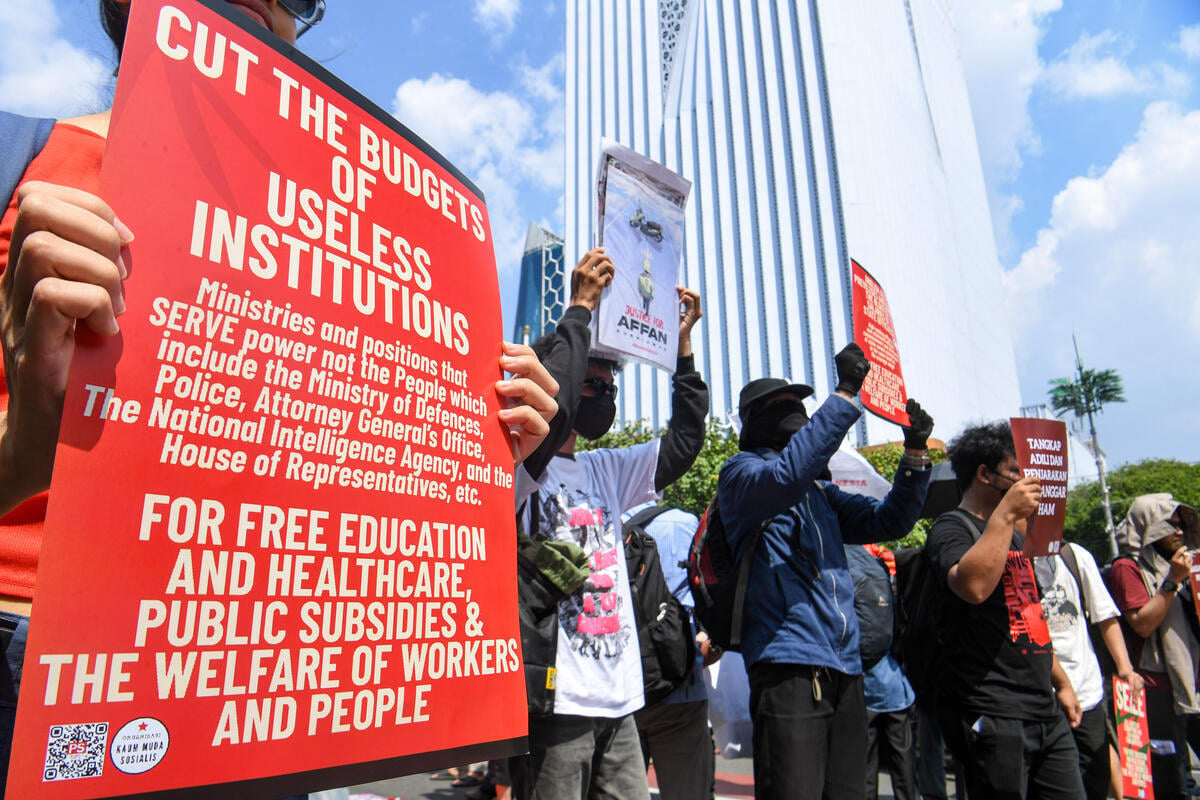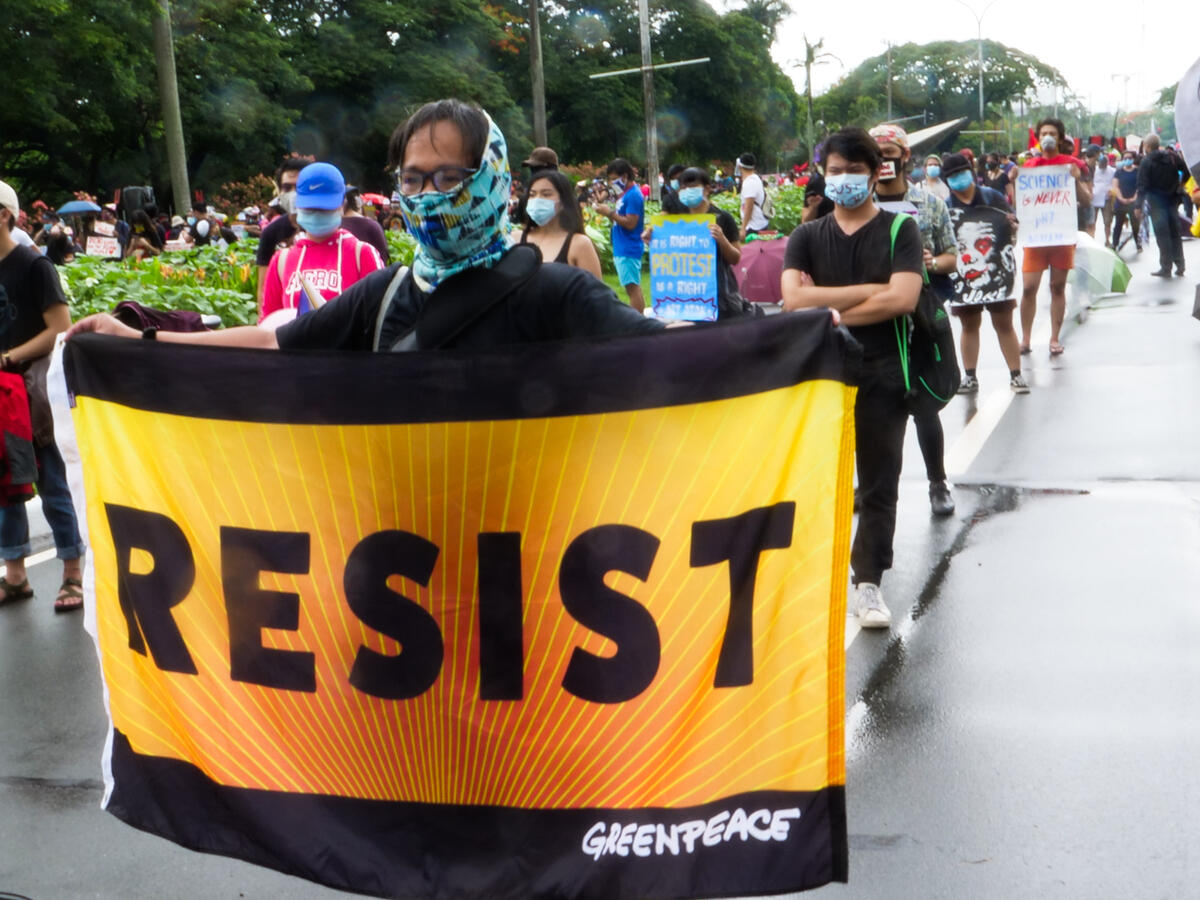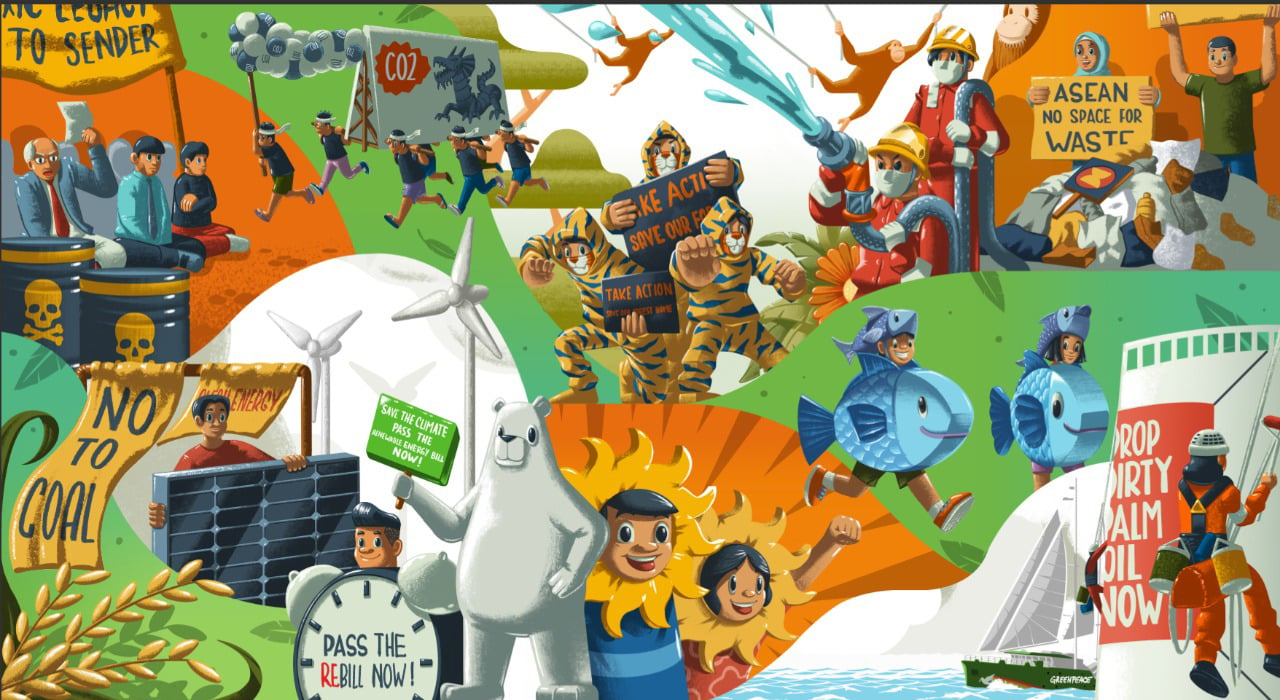Sometimes, solidarity doesn’t begin with a march or a manifesto. It starts quietly, in the smallest corners of the internet.
Scrolling through X one restless night, I stumbled on a post that has stayed with me. A user, @sighyam, wrote:
It read like a casual discovery—half surprise, half excitement. But in that moment, it cracked open a possibility: that something as mundane as a food delivery could become a bridge of solidarity. And soon, it did. In Manila, people began sending rice boxes to drivers in Jakarta. In Kuala Lumpur and Bangkok, strangers ordered coffee and bottled water. Some added only short notes: “Stay strong, we are with you.”
What might look like ordinary transactions suddenly transformed into acts of defiance. Meals became messages. Coffee became comfort. Across borders, Southeast Asia found a way to shine together. This was SEA-blings: solidarity glittering like a gem in the dark ocean of repression.
Shadows We All Recognize
This solidarity isn’t random. It’s born from the wounds we, Southeast Asians, know all too well. From the crowded streets of Manila to the clogged avenues of Jakarta, from the bustling corners of Bangkok to the gleaming towers of Kuala Lumpur, we live under regimes that though draped in different flags—share the same face: corrupt, oligarchic, allergic to dissent.

We’ve seen these headlines too many times to ignore. Tear gas raining down on students asking for a future, while governments approve mining permits faster than they can answer a single demand from citizens. Parliaments debate endlessly over wages, yet somehow move at lightning speed when it comes to their own allowances. Truly, if betrayal were an Olympic sport, they’d win gold every year.
And yet, here we are; awake, aware, refusing to be silent. Because even as they perfect their indifference, we perfect our resilience. We’ve learned that the more they try to chain our voices, the louder we can rise. The more they bet on our fear, the more we turn it into courage. Shadows may be familiar, but so is the fire in our hands. And that fire? It’s just getting started.
Why Indonesia Rose Up
The spark came from a single shocking decision. Parliament approved a monthly housing allowance of Rp50 million (around USD 3,000) for its members—almost ten times the minimum wage in Jakarta. On paper, it was just another policy. In reality, it was a mirror showing a system that had long ignored the struggles of ordinary Indonesians.
For years, families stretched every rupiah to survive. Food prices climbed, rent swallowed paychecks, and job security felt like a luxury. Young people graduated into an economy that undervalued them. Labor rights weakened, environmental protections were loosened, and the elite grew richer. The allowance wasn’t just tone-deaf—it became a symbol that the system cared more for the powerful than the people.
The people did not stay silent. From Jakarta to Bandung, Makassar, Solo, Yogya, and even in Lombok, Indonesians took to the streets. Chants rose above tear gas, and their presence in front of parliament buildings and city squares sent a message that could not be ignored: enough is enough.
Tragedy struck as well. Affan Kurniawan, a 21-year-old motorbike driver, was crushed under a police vehicle while delivering food. He wasn’t alone. Reports counted at least 10 lives lost, over 1,200 detained, hundreds injured, and dozens missing. In Makassar, three more were trapped and killed in a parliament fire. From Java to Sulawesi, the playbook was the same: rubber bullets, tear gas, and intimidation of journalists.
Indonesia’s rise proves that change is possible when people stand together. Power belongs to the people, and when they refuse to be silent, they shape the future. The streets may have seen grief and rage, but they also saw courage, unity, and the undeniable promise that the future is not something stolen—it is something we can build together.
From Jakarta to Manila: The Spark of Sea-Bling
Even in the harshest repression, light always finds a way to break through. Across Southeast Asia, people watched Indonesia rise and felt it in their own streets, their own homes, their own hearts. In Malaysia, Malaysian citizens demonstrated in front of the Indonesian Embassy in Kuala Lumpur to condemn the violence by authorities against protesters in Indonesia. In the Philippines, ordinary citizens sent food, care packages, and handwritten notes of love to Indonesian drivers and protesters, small acts that became powerful symbols of solidarity. In Thailand and Hong Kong, activists framed Indonesia’s struggle as part of the Milk Tea Alliance—a movement that reminds us all that ordinary people, when united, can resist authoritarianism together.
And suddenly, those simple gestures—a box of rice, a cup of coffee, a whispered prayer—became more than sustenance or comfort. They became a lifeline, a promise, a message carried across borders: “We see you. We are here. You are not alone.” Each delivery, each message, each act of quiet support was a spark lighting up the darkness, showing that hope cannot be silenced by fear or violence.
This is our sea-bling: a jewel born from shared suffering, polished by shared hope, gleaming defiantly against oppression. It is not just a metaphor. It is energy, it is resistance, it is connection. It is the way ordinary people across nations remind each other that even in moments of despair, solidarity can shine brighter than any shadow. It is proof that hope travels farther than fear, and that together—across streets, cities, and seas—we can hold up the light until the darkness breaks.
Corruption, Climate, and the Enemy We Share
Our fight for freedom cannot be separated from our fight for survival on this planet. In Indonesia, lawmakers who approved bloated allowances also support coal mining, palm oil plantations, and large-scale industrial projects that destroy forests and peatlands. Around 4.4 million hectares of land burned between 2015 and 2019, fueling haze that drifts across Malaysia, Singapore, and southern Thailand. This smoke contains fine particulate matter that causes threats to human health, leading to premature mortality, asthma, and various health issues.

Southeast Asia pays a heavy price for this corruption. In the Philippines, landslides and typhoons destroy thousands of homes every year. More than 5.9 million people have been affected repeatedly. Bangkok and Manila regularly experience flooding that paralyzes cities, affects agriculture, and disrupts trade. Vietnam’s coastline faces severe storm surges, and rising sea levels threaten the Mekong Delta, home to over 17 million people. These disasters are not random—they are intensified by deforestation, peatland drainage, and poorly regulated industrial activity. Greed fuels both corruption and climate chaos.
Communities are losing more than land—they are losing culture, livelihoods, and life itself. Indigenous groups in Kalimantan and Sumatra are forcibly displaced from ancestral forests. Fisherfolk see coastal fisheries collapse as mangroves are cleared. Farmers lose crops to floods and fires that could have been mitigated with stronger environmental protections. Anti-corruption laws are weakened, logging permits are fast-tracked, and voices calling for justice are silenced through intimidation or arrest. Across Southeast Asia, thousands of people are directly affected by environmental disasters each year. The institutions meant to protect them are often part of the problem.
This is why Indonesia’s uprisings resonate regionally. When Indonesians rise against corruption and environmental destruction, Malaysians, Thais, and Filipinos feel it. This is not just empathy—it is recognition. Smoke from burning forests does not respect borders. Floods, landslides, and storms affect trade, food security, and migration across the region. Their struggle is ours. Their courage is a call to action: to demand accountability, defend communities, protect ecosystems, and refuse to let greed and corruption determine our shared future.
Rising Together
This movement in Indonesia is not just about an allowance. It’s about drawing a line: enough greed, enough repression, enough theft of our future.
And when people in Manila send rice boxes, when Malaysians stand in solidarity, when Thais and Hongkongers amplify the chants, we find something precious: solidarity not as a dream, but as a living force.
Solidarity that breathes in the meal sent across the sea. Solidarity that grows in hashtags and prayers. Solidarity that burns in the courage of students facing down tear gas.
This is the brilliance of SEA-blings—a light that cannot be extinguished.
The wave has risen. And when it rises, it will not rise for one nation alone. It will rise for all of us.
Sherina Redjo is a Content Writer at Greenpeace Indonesia


